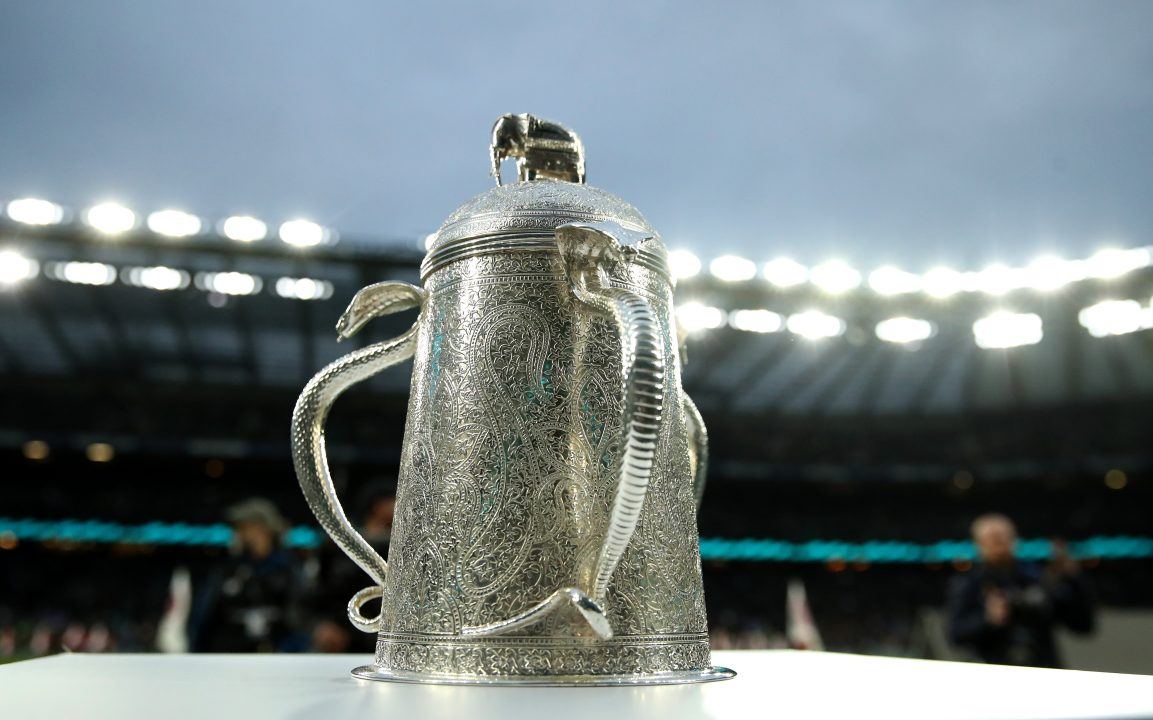No sporting showdown between Scotland and England can ever be played down, but a glance at the headlines this week have shown this one really matters.
It is Calcutta Cup time and Scotland’s historic run of success in the fixture – four wins in a row and holding the cup for seven of the last eight years – is definitely starting to get under the skin of our friends and neighbours to the south.
“England’s famous five must show weedy Scottish forwards no mercy” bellowed one opinion piece last weekend.
“Why England will beat Scotland with plenty to spare and the pack that will monster the Auld Enemy” was the cry from World Cup winning head coach Sir Clive Woodward.
And then the columns took a more existential direction, hinting that this recent dominance was coming at the cost of the soul of Scottish rugby.
“Scotland rugby team is losing support over ‘plastic players’” claimed one broadsheet, while another English title claimed: “It’s all very well Scotland beating England (thanks largely to a South African) but they are pitiful at ever backing it up”.
If ever there was a time for the infamous clip of Charlie Mulgrew pursing his lips. “Raging, isn’t he?”
The charges levelled at Scotland can be summed up as; too many foreign-born players; their pack was dominated by Ireland last time out; this game means more to them than it does to England.
None of which cut to the heart of why they keep winning this fixture. Scotland simply have played a brand of rugby that England find difficult to contain.
Since Gregor Townsend arrived as head coach in 2017 he has lost just once to the Red Rose. Scotland have adapted their game plan a few times over the last eight years but the central plank of the plan remains the same – to play with width and release their strike runners into space.
It is why this team, wounded badly by their physical mauling at the hands of the Irish, can still go to Twickenham and believe they realistically can make it five in a row over their oldest rivals.
The Scots pack rightly has taken criticism for being second best against Ireland. The green machine dominated collisions, had their way at the breakdown and edged the set piece battle too.
But Ireland have Scotland’s number the same way Scotland have had England’s. The essence of their game exploits that particular opponent’s very weaknesses.
It would be premature in the extreme to write off the Scottish forwards in terms of physicality. Just four months ago they stood toe-to-toe with the world’s best pack, South Africa. They have grown the abrasive side of their game over the past 12 months.
The demise of the Scots may be greatly exaggerated but it is no stretch to believe that England are on the rise. Their 26-25 win over France was a lesson keeping the scoreboard tight, seizing opportunities and executing when it really mattered.
Fly half Fin Smith – whose family are Scottish and was strongly coveted by Townsend before declaring for the English – was instrumental in attack and defence, allowing the game-breaking talents of Marcus Smith to flourish at full back.
The English forwards stood up to the daunting French pack and delivered a bruisingly effective display to set the platform.
Scotland need locks Grant Gilchrist and Jonny Gray to roll back the years in the boiler room. They need Rory Darge and Jamie Ritchie to be at their aggressive, confrontational best. The front row has to hold up better in the scrum after struggling against Ireland.
The Scottish backline has an abundance of talent but perhaps not yet the right blend in the absence of captain Sione Tuipulotu. Can Blair Kinghorn recapture his thrilling club form for Toulouse while playing full back for his country, and how best can the Scots utilise Tom Jordan as a second playmaker to Finn Russell?
Duhan van der Merwe (yes, he was born in South Africa) has been the hammer of England with seven tries against them and always seems to bring his best in this fixture.
Both teams enter the arena on Saturday with one win and one defeat – whoever comes out on top keeps their Six Nations dream alive, while the vanquished will be consigned to another lost year in the championship. It all rides on this.
And maybe the Calcutta Cup does mean more to Scotland. As England embarked on a decade-long winning run from 2007 to 2017 it seemed to be with a shrug of the shoulders that they lifted the trophy every year.
Scotland becoming relevant – and now dominant – has changed that. You can be sure that if it’s Maro Itoje holding the cup on Saturday night there will be great scenes of celebration in south-west London.
Whatever the result this is a rejuvenated rivalry at last. The salty opinion columns have already proven that.
Follow STV News on WhatsApp
Scan the QR code on your mobile device for all the latest news from around the country


 Getty Images
Getty Images




















